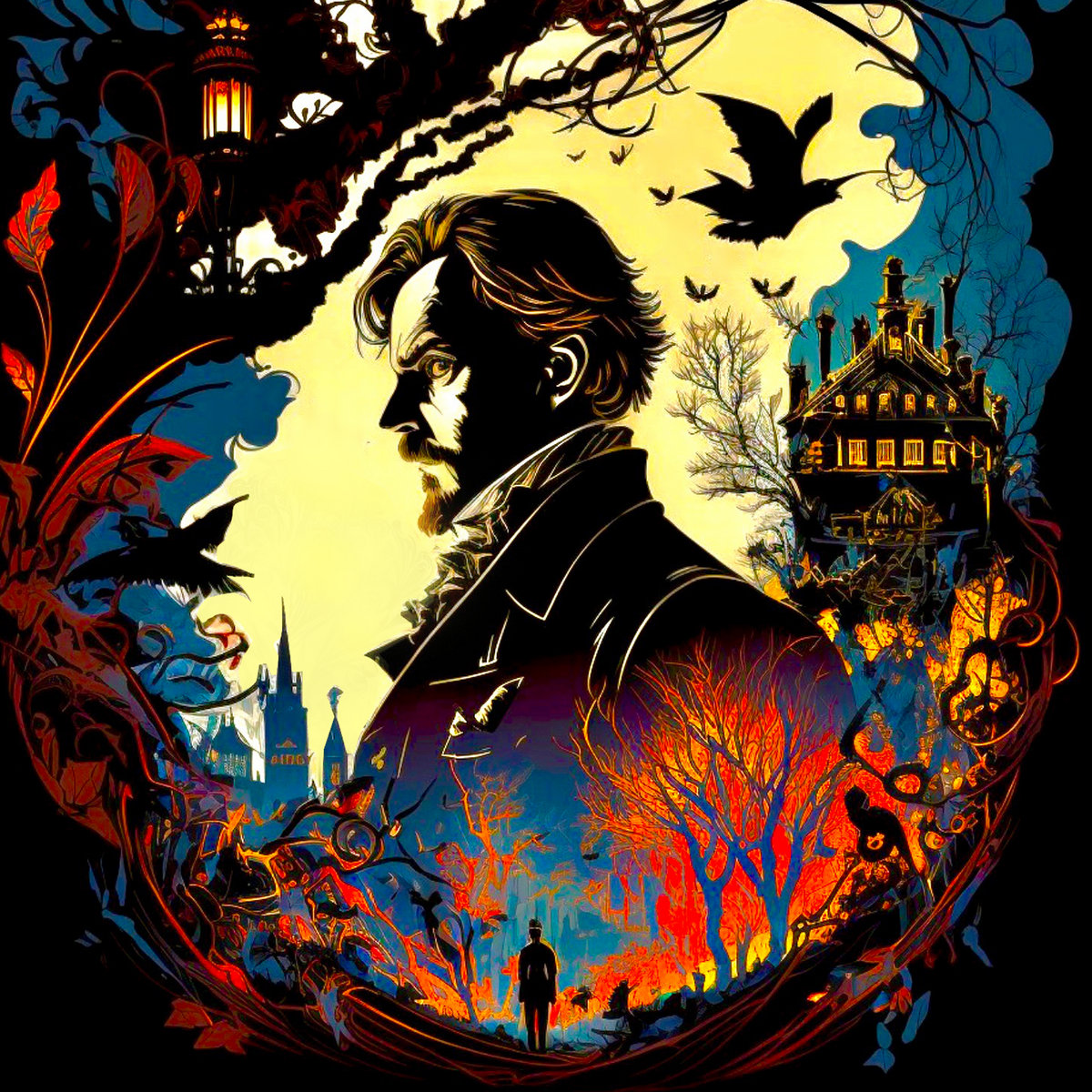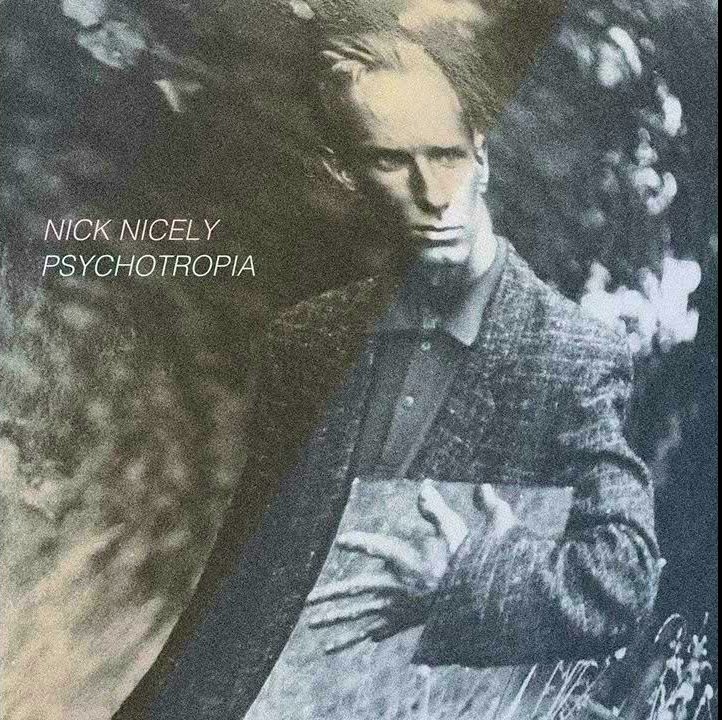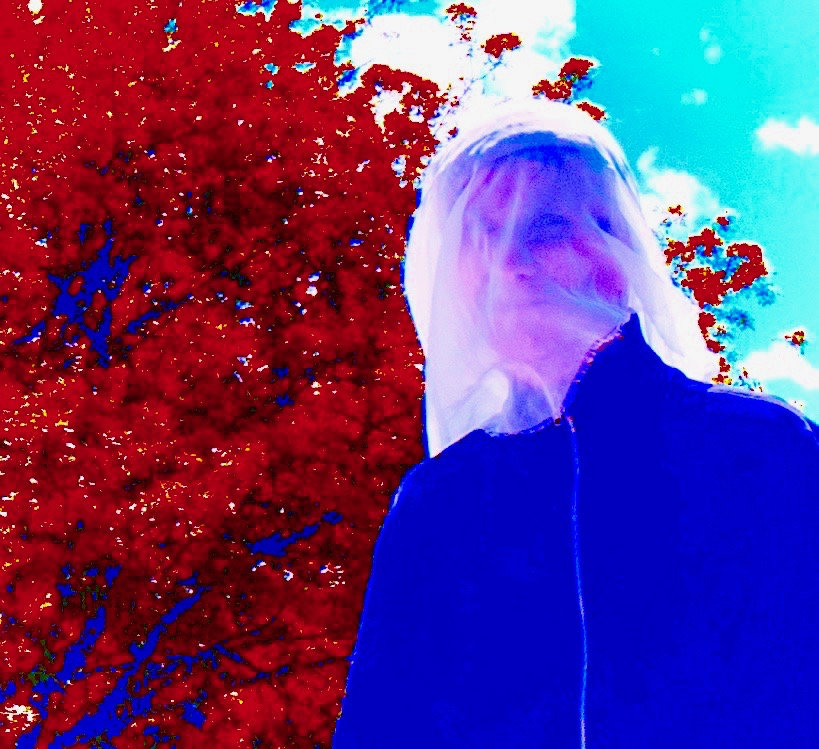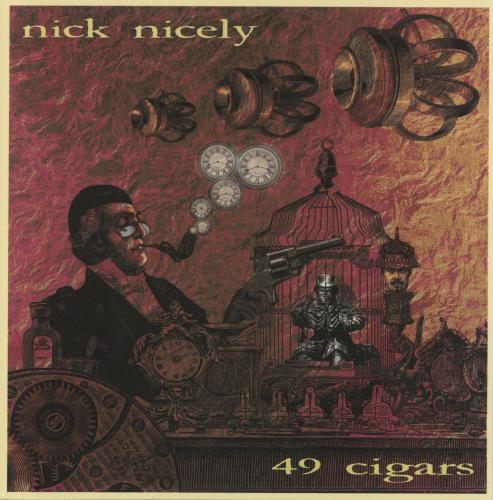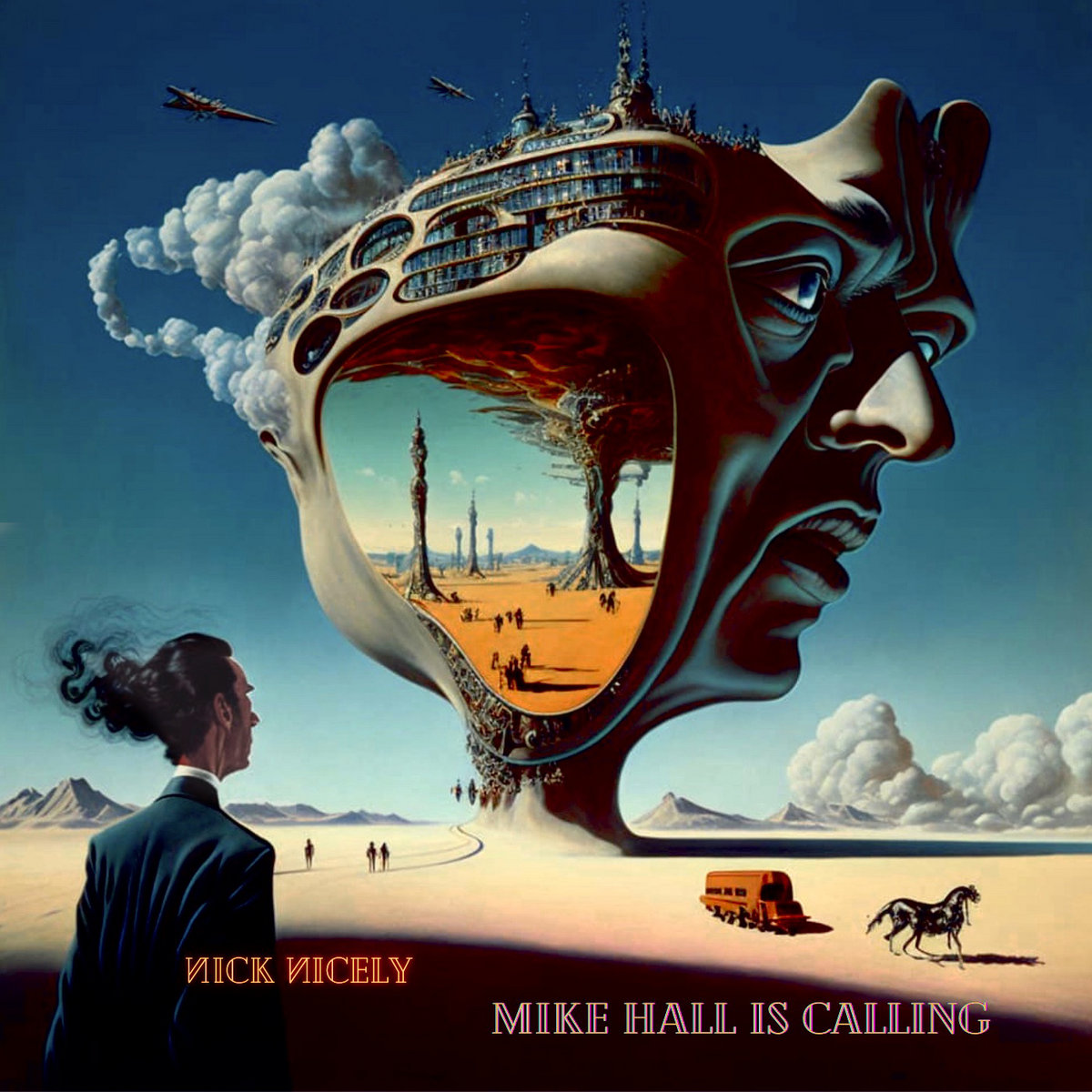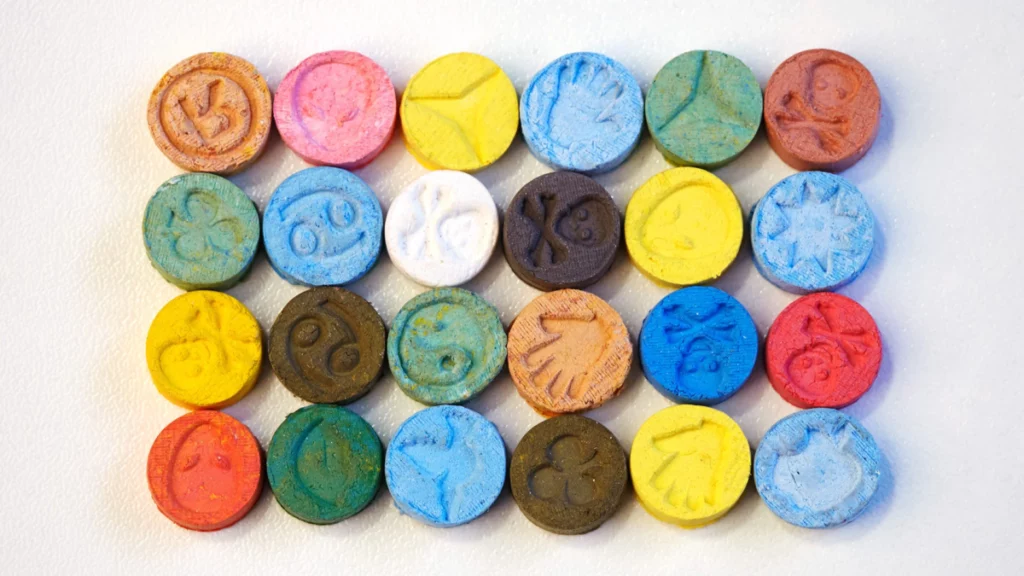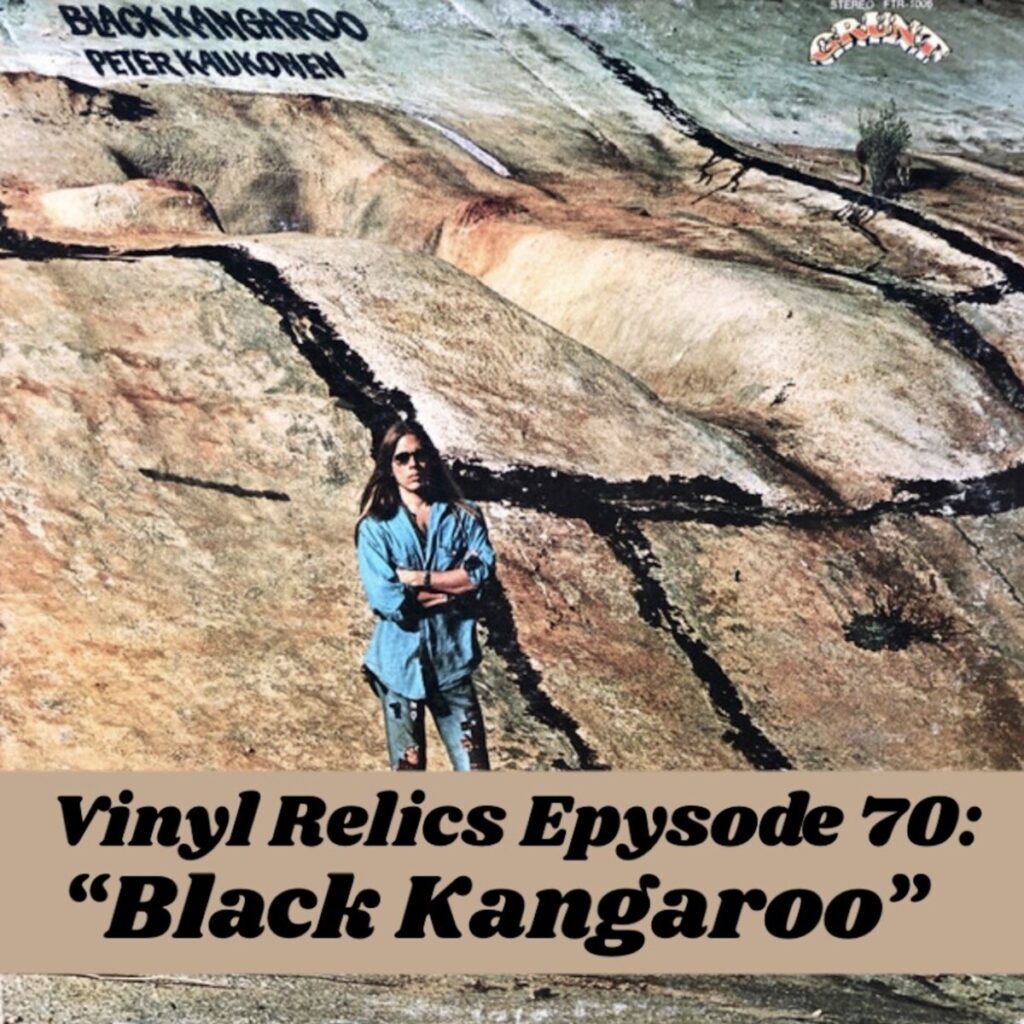Interview: Nick Nicely
Interview: Nick Nicely
Jason: I’m Jason LeValley with Psychedelic Scene and I’m here with Nick Nicely. Nick, thank you so much for joining me today– or tonight as it is for you right now.
Nick: My pleasure.
Jason: You mentioned that you’re based in Germany currently. What inspired your move there?
Nick: Uh, love.
Jason: Oh, okay. So, you have a German girlfriend or wife?
Nick: That’s right. Wife. I have a German wife, yeah.
Jason: Uh-huh. Okay. Well, for part of your formative years…
Nick: Go ahead.
Nick: No, well, where am I from? Originally, I’m from North London and Hertfordshire, which is about 50 miles north of London as well.
Jason: Yeah, I was just going to ask you a little bit about that. You were in Brockley for part of your formative years.
Nick: That’s true.
Jason: That’s a Victorian preservation neighborhood.
Nick: It is. It is.
Jason: So, yeah. That sounds pretty cool. How did that influence your music?
Nick: I think it did. I like history anyway. Before I went to Brockley, I’d made—before I went to that particular part of Brockley—I’d made “1923,” which is another sort of old scene set in Cairo. It’s on the album as well, called “1923.” So, I was very into historical stuff. Living in a museum’s kind of surroundings, yeah, inspiring.
Jason: Is that why you added the “1892” to “Hilly Fields?”
Nick: No, that was the manager who did that. I would have called it “Hilly Fields”, but he insisted. So, what the hell? Him and I agreed that that’s what it should be. The song goes “1892,” and the manager thought that should be part of the title.
Jason: Hmm. Okay. Well, that song “Hilly Fields” included the first ever instance of scratching on a record that wasn’t hip hop.
Nick: Yeah.
Jason: Were you influenced by hip hop or was that…?
Nick: No, that’s just in psychedelia, you’re always looking—well, I was always looking—for something unusual, any sound that gave me a vibe of dislocation. I found that to be really effective. I gather that the first recorded (scratching) was by other people after me, Grandmaster Flash, I believe. But it’s just an accident. It’s pure accident, but it fits well with the track. Gives it a bit of wildness.
Jason: Yeah, I like it. It does.
Nick: Yeah. But I’m doing some good new stuff actually as well. I don’t know if you know any of the new stuff on Bandcamp.
Jason: Well, I remember when you came out a couple years ago with the song called “Mike Hall is Calling.”
Nick: Oh, that’s it. That’s true.
Jason: That’s the first from this new LP.
Nick: So I’ve been adding them one by one to Bandcamp and the new ones—really, well, there’s one from this year that’s come out, just released, I’m very pleased with it. It’s called “Or a Brockley Afternoon.”
Jason: It’s called what?
Nick: So I would recommend anybody to have a listen to that for new psychedelia.
Jason: It’s on Bandcamp.
Nick: That one works. That one works.
Jason: Yeah, okay. We’ll put the Bandcamp link in the text for the article.
Nick: Please.
Jason: In the ’80s, you had the opportunity to work with Trevor Horn, best known for his work with the Buggles and Yes.
Nick: Indeed. And Frankie Goes to Hollywood.
Jason: Oh, okay.
Nick: And Seal as well.
Jason: Well, he produced those acts, but he was actually in the Buggles and Yes.
Nick: That’s true, yes.
Jason: So you declined his offer to work…?
Nick: Well, it’s more complicated than that. I’m just trying to think how he came to me. I think he loved “Hilly Fields” and he was in a mood to still work with an artist that hadn’t made a name already. He worked with a bloke called Philip Jap around that time. Anyway, we got talking. He called me up. We had a two-hour conversation. I met him too. He said, “I think you know how to produce.” I’d just made “Hilly Fields,” liked the sound, maybe I thought I could. So, it’s not exactly me turning him down, it’s me not sucking up to him and agreeing within the first two hours. It was an interesting conversation. At one point he said that what he’d like to do is to take the Yes album—I forget which one—and then copy the peaks and troughs in emotion that ran through that, use that as a blueprint. Now, for me, that’s just a terrible idea.
Jason: Yeah, I can see how that would not be appealing to an artist.
Nick: Yeah, yeah. But this is it. And the other thing is he was offering very bad deals. I’ve just recently got to know people from Propaganda here in Germany. They were a ZTT Trevor Horn act, also talking about the terrible deals. Trevor felt he put so much of himself into making these wonderful records that he deserved a bigger chunk. Also, studio costs for everybody were so huge that recouping was always a long shot.
Jason: Right, but wouldn’t you—with his stamp on it—wouldn’t it have gotten more exposure?
Nick: Yeah, sure. I don’t know what’s the right answer, but I have a feeling he’d be…who can say? One tiny regret: there’s a track on my album Psychotopia called “On the Coast.” I had just made that track—the first after “Hilly Fields”—and told him I had a lively track. He said, “Send it to me,” but I never did. That’s my only regret. I should have sent him that. He might have liked it. But he quickly moved on to ABC and had wonderful success, just a bit later. So I think it’s all for the best, probably.
Jason: Yeah. Well, you’ve said that psychedelia is about using the latest technologies in service of the same exploratory spirit of the ’60s. How has digital production affected the kind of modern psychedelia you pursue today?
Nick: Well, obviously you don’t have to assemble a—coalition of the willing—amongst musicians. If you don’t have money, you don’t have to pay for musicians or studios. “Hilly Fields,” I was paying £200 a day, even for 16 track in a small studio. Nowadays, that’s sort of £600 in today’s money. I didn’t have the money. I ran out. So, the modern digital world means you’ve avoided these two huge barriers. It can mean too many people; the entry bar is too low. Some argue that, but I think it’s probably a good thing that people can make music more easily. There’s more chance—even by accident—of a happy wonderful accident if you’ve got more people doing it.
Jason: Okay…
Nick: More chance of somebody, even by accident. I think I’d say that.
Jason: All right. Since you’re making psychedelic music, I’ve got to ask, is your music informed at all by psychedelic substances?
Nick: Yeah.
Jason: You’d be surprised at how many people I’ve interviewed say no, even though they’re psychedelic artists.
Nick: Yeah, well, I can’t speak for them. We hear Pink Floyd never took any acid apart from Syd. That’s what we hear.
Jason: Yeah.
Nick: I can believe it.
Jason: Yeah. I’ve asked Colin Blunstone and Rod Argent of the Zombies, who created Odessey and Oracle—neither one had taken it.
Nick: I can believe it.
Jason: Well, you disappeared for quite a while before you returned in the 2000s. What…
Nick: All right. Well, that’s not quite true. My really bad period was at the end of EMI, sort of ’84 through till about ’88, ’89. I’d spent all my money and sold my home studio to make “Hilly Fields.” Had the success but had just been completely ripped off by a company. Didn’t get any of the rewards. Very sad story, but it’s all too common. But anyway, a housing boom in London meant landlords started buying out tenants. I got £10,000 to get out of that flat, invested in the home studio, and around ’88 got involved in acid house music. “DCT Dreams” has drum machines—it’s not a huge leap, just an abstraction. I was scratching back in ’81. Acid house abstraction attracted me and I got involved in the giant illegal parties of ’89.
Jason: Yeah.
Nick: Yeah, I went right through the middle of that.
Jason: The acid house scene? Rave culture…
Nick: Yes. I went right through the middle of it, putting on one of the most notorious parties. The party went ahead but there was a riot made the second item on BBC News, had to go on the run, you know, great to talk about, but terrifying at the time. A DJ we worked with, Gavin, came down to my studio, we made tracks. Finished the track, somebody’s brother put it out, big hit in rave terms, #1 in several shops, sold 8,000 or something. Brought out own house tracks, got into national dance charts on our label. Great time—a cottage industry at home, making everything at home and giving it to distributor or taking it to shops ourselves. From ’84, just a nice little addendum, coming out next, 17th November, reissue of first track on All City Records in Dublin. For me it’s Nick Nicely’s acid, also acid house has acidic side. Love the sonics and energy—picked up a lot. Of course, was rewiring my brain—with drugs of the day, ecstasy, and such—just rewires the brain. So I don’t feel intimidated by modern music like my contemporaries. Because of acid house experience, yeah, fills in the time…. The long answer is, you’ve left EMI at ’84 and did nothing till 2000, not the case. Started remaking Nick Nicely around ’96, and from there it was compiled, became rediscovered, record brought out by Castle, “Psychotopia.” Firstly by 10th Planet and David Wells, involved in “digging me up” or rediscovering me…
Jason: Okay. Yeah, I didn’t mean to imply you weren’t making music or anything.
Nick: No, but I’ve heard this story before. Not a bad story, but I didn’t feel disappeared.
Jason: Okay.
Jason: What are your thoughts on the current state of modern psychedelia, neo-psych?
Nick: That’s a big subject. One strand that’s different than my version is what I’d call the major seventh chord psychedelia that came in with Tame Impala. You know what I mean? Sounds a bit jazzy, just a hint of jazz. Chords are slightly jazzy, not frightening. You feel safety, whereas I like to go closer to the edge, scare myself—do something in that area. There are many variations. Ariel Pink was doing that—starting that off. It’s everywhere. Vinyl Williams—Californian artist—he’s taken it to the extreme in jazz. Amazing. We’ve become great friends. Came over to Berlin, played version of “49 Cigars” for me—I was honored. So that’s one strand of modern psychedelia. I like Morgan Delt, LA guy. Met him here, had an entertaining time. “Barbarian Kings,” saw him play here. he’s really—
Jason: Phase Zero
Nick: I felt akin to him, working at home trying to do his own version of psychedelia. Kinship with his music.
Jason: I’ve been wondering when he’s coming out with something. It’s been like 10 years or something.
Nick: Not quite that long. Seven years. (Editor’s note: Nine years) Was with Sub Pop—big label. Must have left. Vinyl Williams played in his band, played all instruments, but was playing with Morgan Delt when I saw him in Berlin. Uh, I’ve forgotten why I brought this up…
Jason: My original question was, what are your thoughts on the current state of modern psychedelia…?
Nick: So I’m not too much included in modern psychedelic playlist things, largely because I don’t use the major seventh, slightly jazz feeling. Maybe I’m a bit miserable. More abstract—not fair to say just abstract. I’m not really included, seem to be on my own, style-wise. I sometimes argue that psychedelia over my years has triumphed. You look at any modern music, it’s full of abstract hisses, fizzes, weird voices. I think psychedelia is everywhere in a sense. People love to do abstractions on videos. Had really psychedelic lights on Eurovision a couple years ago—sensational lights. So what do you say about modern psychedelia?
Jason: There’s much I like about it. One strange thing is how chill most of it is—kind of chill psychedelia.
Nick: Yes. That’s major seventh psychedelia. Jazzy and chilled out. Doesn’t harm you—not the right word, but gentle. It’s nearer lift music than the style I would choose. Not lift music, just gentler.
Jason: Yeah. A lot of it is, but not all. Tonight, I’m going to go see Thee Oh Sees, and they’re a pretty hard-edged psychedelic rock band.
Nick: Hmm. Lead guitar can sweep me away—psychedelic expression. Rock bands can be great if they’ve got a psychedelic twist.
Jason: How do you feel about being a cult artist? Is that status freeing or limiting or somewhere in between?
Nick: Interesting. Is it freeing? I’m so small, it doesn’t seem to matter. I do what I feel I can do. I don’t feel a cult. Especially in Germany, nobody knows Nick Nicely. No chance of me getting big-headed here.
Jason: Is it different in London?
Nick: Yeah.
Jason: Just how do you relate to the idea of being a cult artist?
Nick: I’m flattered—if anyone’s listening, I’m flattered.
Jason: You definitely have some people listening. Just on Spotify alone, you’ve got over a million streams for “Hilly Fields.”
Nick: That’s great. People do listen. Would be doing it anyway. I’m excited about my new album…
Jason: That was going to be my next question. You released “Afterworld,” like demos and outtakes.
Nick: That’s right. The next record will be—I was going to call it Mike Hall is Calling, now it’s Or a Brockley Afternoon, “Hilly Fields” is in Brockley—Or a Brockley Afternoon seems to be blowing everyone away.
Jason: Or a Brockley Afternoon.
Nick: Or a Brockley Afternoon.
Jason: I like it.
Nick: You’ve heard it?
Jason: No, I like the name.
Nick: You can hear it on Bandcamp. As an artist, when you’re liking your new stuff, that’s the best feeling you can have.
Jason: Did you say it’s already out as well?
Nick: Sorry?
Jason: Is it already out on Bandcamp?
Nick: Mike Hall‘s there, some crazy stuff, yeah, it’s all on Bandcamp—Nick Nicely official. Six tracks from the album, caused a bit of a stir, magazines want interviews for the release, which can’t be before next May or June at the earliest. That’s nice—people feel there’s something in the wind with my stuff. No one expects it—often people start retreading, no vibrancy to later work. That’s my dislike, the idea I’d do stuff not seriously interesting. Nick Solomon, who I know a little bit, says he carries on as long as he can do good music. His new album on Fire Records is pretty good, especially “Leb Off.”
Jason: That’s the single off the album.
Nick: It is? I think that’s the best thing he’s done. Told him, best track he’s done. Won’t do it live—some recorded bits, can’t do it live, but that’s a killer track. My favorite. Nice for him to have good new stuff. Same for me. If I wasn’t doing unique stuff, I wouldn’t put it out. So, yeah.
Jason: Well, do you have any final thoughts before we wrap this up? Anything you want to promote?
Nick: That’s enough—three quarters of an album and a new single, the reissue called “Psychotropic,” from my work with a DJ, “Only for the Headstrong.” That’s cool, nothing like Nick Nicely. It’s got some acid in it—you can trace the acid.
Jason: Great. Thanks so much for your time.
Nick: Nice talking to you.
Jason: Likewise. Take care.
Nick: Bye now.
Gallery
Recent Articles
Unicorn by Rio Kosta–Album Review
•
February 24, 2026
Vinyl Relics: Black Kangaroo by Peter Kaukonen
•
February 21, 2026

Loading...

